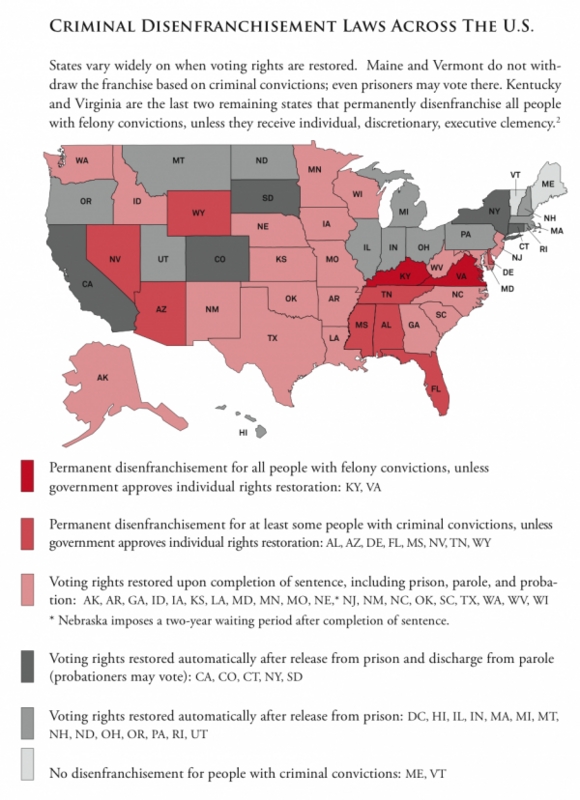Reforming
Participation and Exclusion of Inmates from the 1990s to Today
In the 1990s, criminologists began to consider anew the promising effects of increased political and social participation of inmates via an inmate self-government program. They concluded that “Participation consistently fostered a more positive sense of social responsibility while such attitudes deteriorate among the nonparticipant group, especially acceptance of law and authority.” However, in all but two states of the U.S., prisoners are denied the right to vote. Many states ban people with felony convictions from voting for life. The negotiation of prisoners' participation is thus limited to the inside of prison walls.
